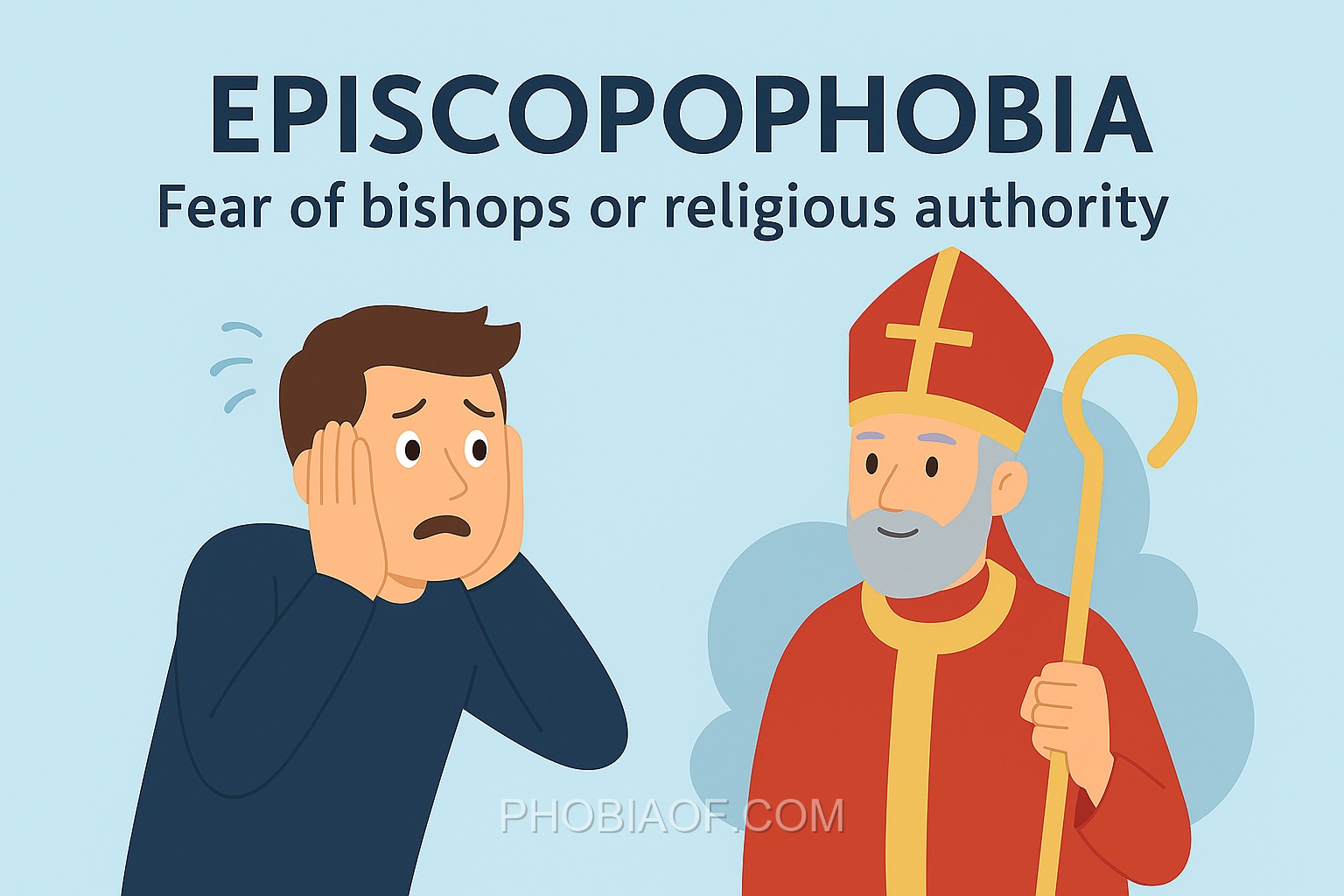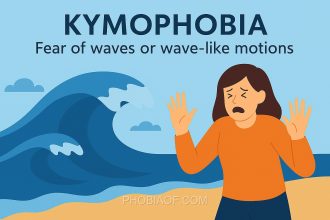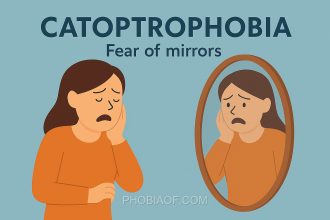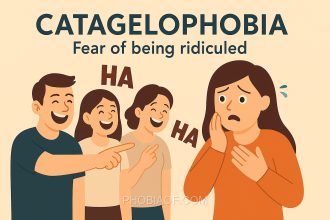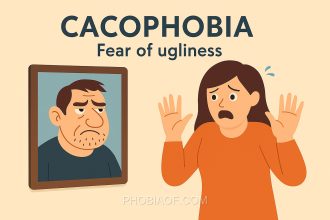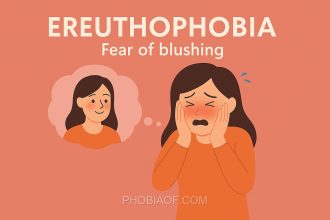Have you ever felt an inexplicable sense of dread at the mere thought of a figure clad in religious vestments or experienced irrational anxiety during a religious ceremony? If so, you might be familiar with Episcopophobia, a term that might sound peculiar but describes a very real experience for some people.
Episcopophobia is defined as the fear of bishops or religious authority figures. The term itself is derived from Greek, where “episkopos” means “overseer” or “bishop,” and “phobos” means “fear.” This phobia extends beyond a simple dislike or discomfort and can manifest as intense anxiety or panic in situations involving religious leaders or institutions.
For those affected, Episcopophobia can significantly disrupt everyday life. It may cause avoidance behaviors, where individuals steer clear of religious settings, events, or even conversations. This fear can also lead to feelings of isolation, especially for those in communities where religious participation is a central aspect of social life.
- Individuals might avoid attending church services or religious ceremonies.
- They may experience physical symptoms such as sweating, trembling, or a rapid heartbeat when faced with religious authority figures.
- Some might struggle with guilt or shame, particularly if their fear conflicts with personal or cultural beliefs about religion.
Understanding Episcopophobia is essential for fostering empathy and providing support to those who experience it. By recognizing the roots and impacts of this fear, we can better appreciate the diverse ways in which individuals relate to religious authority and create more inclusive environments.
Causes of Episcopophobia
Episcopophobia, the fear of bishops, is a rare and specific phobia that can affect individuals differently. Understanding the potential causes of this fear can help in addressing and managing it effectively. Below are some common reasons why someone might develop episcopophobia:
- Genetic Predisposition: Some individuals may have a genetic tendency to develop phobias. If a family member has a history of anxiety disorders or phobias, it might increase the likelihood of developing similar fears.
- Traumatic Experiences: A past negative encounter with a bishop or religious authority figure can lead to fear. This traumatic experience might be direct or observed, such as witnessing someone else having a distressing interaction.
- Learned Behavior: Phobias can sometimes be learned from observing the reactions of others. If someone close to the individual exhibits fear or anxiety around bishops, this behavior might be unconsciously adopted.
- Psychological Factors: Underlying anxiety disorders or psychological conditions can contribute to the development of specific phobias, including episcopophobia. The fear might be a manifestation of broader anxiety issues.
- Environmental Influences: Cultural or societal views on religious authority can also play a role. In environments where religious figures are seen as powerful or intimidating, these perceptions might contribute to fear.
Interestingly, some theories suggest that phobias like episcopophobia might have evolutionary roots. Historically, avoiding perceived threats, even if irrational, could have been advantageous for survival. Although research specifically on episcopophobia is limited, understanding general phobia mechanisms can provide insights into its origins.
Recognizing these causes can be a vital step towards effectively addressing the phobia, through methods like therapy or gradual exposure, to reduce its impact on daily life.
Symptoms of Episcopophobia
Episcopophobia, the intense fear or anxiety related to bishops or the church hierarchy, can manifest in various ways. This phobia can significantly impact an individual’s emotional and physical well-being. Below are some common symptoms experienced by those with Episcopophobia:
Physical Symptoms:
- Panic attacks characterized by an overwhelming sense of fear or dread.
- Profuse sweating, particularly when exposed to triggers associated with the phobia.
- Rapid heartbeat or palpitations during encounters with feared stimuli.
- Trembling or shaking when thinking about or facing bishops or church hierarchies.
- Shortness of breath or hyperventilation when exposed to church-related situations.
Emotional and Behavioral Symptoms:
- An overwhelming sense of dread or anxiety when thinking about bishops.
- Avoidance of places or situations where encounters with church hierarchy are likely.
- Feelings of helplessness or being out of control when faced with the phobia.
- Persistent worry about encountering bishops or discussing topics related to the church.
- Difficulty concentrating or focusing due to intrusive thoughts related to the phobia.
When severe, these symptoms can interfere with daily life, making it challenging for individuals to engage in social, professional, or religious activities without experiencing significant distress.
Treatment for Fear of Bishops or Religious Authority
Overcoming Episcopophobia, or the fear of bishops and religious authority, is entirely possible with the right treatment and coping strategies. It’s important to know that you are not alone, and this phobia can be managed effectively over time. Let’s explore some of the proven therapies and techniques that can help you regain control over your life.
Proven Therapies:
- Exposure Therapy: This therapy involves gradually facing your fears in a controlled and supportive environment. By slowly and repeatedly exposing yourself to the source of your fear, you can reduce anxiety over time and learn to associate the situation with feelings of safety rather than fear.
- Cognitive-Behavioral Therapy (CBT): CBT is designed to change the negative thought patterns that contribute to your fear. A therapist will work with you to identify irrational beliefs about religious authority and replace them with more constructive and balanced thoughts.
- Counseling: Talking to a mental health professional can provide you with emotional support and guidance. Counseling offers a safe space to explore your fears and develop strategies to cope with them effectively.
Self-Help Coping Techniques:
- Relaxation Exercises: Techniques such as deep breathing, progressive muscle relaxation, and visualization can help calm your mind and reduce anxiety in situations where you feel fearful.
- Meditation: Regular meditation practice can improve your overall mental well-being and reduce stress, making it easier to manage phobic reactions.
- Support Groups: Connecting with others who experience similar fears can provide comfort and encouragement. Sharing experiences and coping strategies can be incredibly empowering.
In some cases, medication such as anti-anxiety medications might be prescribed by a healthcare provider, particularly if the phobia is severe and significantly impacts your daily life. However, the primary focus should be on therapy and developing coping skills.
It’s important to seek professional help if Episcopophobia is interfering with your daily life or causing significant distress. A mental health professional can guide you on the best treatment path and support your journey to overcoming this fear. Remember, you have the strength and resources to manage this phobia, and help is available when you need it.
Conclusion
In understanding Episcopophobia, the fear of bishops or religious authority, recognizing the underlying causes and identifying the symptoms are crucial steps towards addressing this phobia. By gaining insight into why these fears manifest, individuals can begin to demystify their anxieties and take proactive steps towards managing them.
Remember, you are not alone in facing such fears, and many people successfully overcome or manage their phobias with time and the right support. Empowerment begins with awareness, and by acknowledging the presence of Episcopophobia, you are already on the path to recovery.
If you or someone you know is struggling with this phobia, consider reaching out to a mental health professional or discussing your concerns with a doctor. Therapy and support from healthcare providers can offer effective strategies and tools to help you navigate your fears.
Stay optimistic and remember that with patience and the appropriate resources, many individuals find relief from their phobias. Embrace the journey towards healing and take comfort in knowing that you have the power to overcome these challenges.
